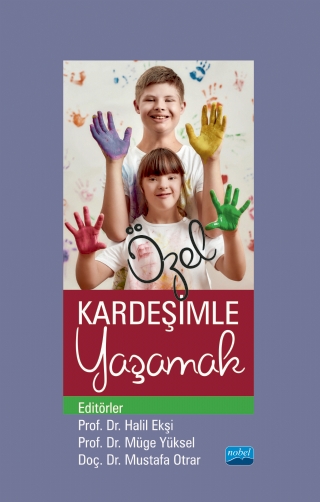Education for the Multiple Disabled \ 1-1

Such a book has been prepared in order to make students with different needs (mental, physical, visual, auditory, etc.) feel that they are valuable individuals for the society and to have fun learning the science concepts that are intertwined with daily life. Since it is thought that it can make the teaching process more enjoyable and create a basis for the permanence of knowledge, it was deemed appropriate to use intelligence games as a tool in this process. In order to enrich the content of science education teaching, we present our original and scientific book, Science Education and Activity Examples with Intelligence Games for Students with Special Education Needs, as an example to you, our valuable science teachers and education stakeholders.

It is obvious that the presence of a child with special needs at home affects all family members. The financial and moral efforts of parents to support the developmental processes of their children can sometimes lead to very tiring experiences. During this time, the needs of siblings with normal development also appear, but these needs can be ignored. It should not be forgotten that having a sibling with special needs can affect a child with normal development from career choice to character. When the domestic and international literature is examined, it is seen that support groups, psychological counseling and guidance activities are mostly focused on parents, but there is not much work on siblings. The book "Living with My Special Sister", whose main purpose is to fill this gap, includes a psychoeducation program to support secondary and high school students with special needs siblings in their problems, as well as psychological counselors, psychologists, special education specialists who work/will work in the field within the scope of rehabilitation counseling. and aims to be a guide for social workers. In the five different chapters in the book, a content that will provide clues about both the social perspective and the emotions experienced by family members and their coping methods is aimed. This study, which is planned without forgetting that the sibling with normal development, as well as the parents, has a common denominator, will further strengthen the family system.